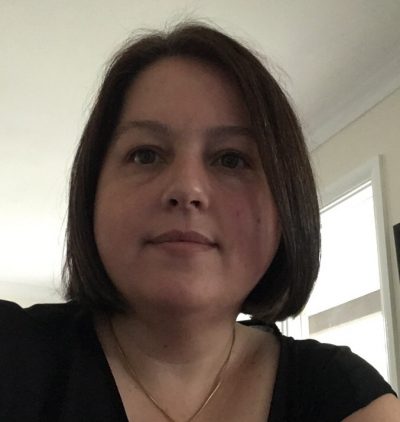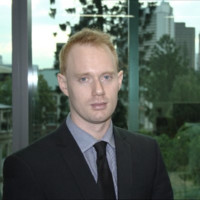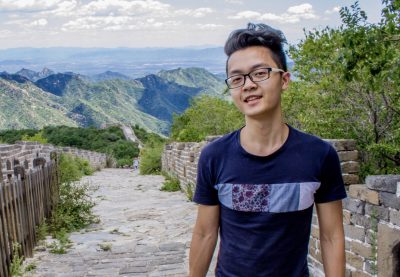
I am an Actuary – June 2019
Many actuaries become qualified at various stages in their lives and actuarial studies provides a range of exciting opportunities. Read about six actuaries who have all encountered different opportunities in their professional lives from working abroad to solving complex problems with cutting edge data science.
Helena Aloysius
At a very young age, I knew that mathematics was one of my strengths. I was also one that wanted to pursue something different and hence fell into doing the actuarial course at ANU whilst the rest of my classmates pursued medicine.
My career has been filled with diverse roles as I had embarked on a different pathway towards becoming an actuary. I started as an underwriter in Strata Insurance in order to understand the bread and butter of insurance. I then moved on to a quantitative analyst role at Chubb Insurance (formerly ACE Insurance) where I was responsible for building live dashboards for the use of senior management. It was during this period that I learnt the most and wanted to complete my actuarial qualifications. I was lucky enough to be offered an Actuarial Analyst position in the company and worked under the Appointed Actuary for a few years. The experience gained during the merger of Chubb and ACE was one that was highly rewarding. I have now moved on to work in the reserving team at IAG and I am enjoying the challenges it gives me daily.
Outside of work, I spend my time either at the gym, having drinks with friends or planning my next overseas trip. I enjoy travelling and exploring different cultures and cuisines.
The journey towards being an actuary has not been the easiest but the guidance and mentorship I have received from some of my managers has definitely helped make the journey a worthwhile one. The resilience and tenacity required in getting through the exams while working full time has helped me become a well-rounded person.
Linda Kemp
I am a bit of an anomaly in terms of the attendees at the Professionalism Course because I completed my exams 12 years ago already and have been practicing as an actuary ever since. I attended the course as an entry requirement for accreditation to the Actuaries Institute, since I am a Fellow of the Actuarial Society of South Africa and the Institute/Faculty of Actuaries. 
I started my career in 2003 in Cape Town, South Africa. My first job was working in actuarial consulting, mostly working in life insurance consulting and some health consulting. I enjoyed the consulting environment but the projects I enjoyed the most were those with a broader societal impact – healthcare or social security. After qualifying I moved to a health insurer and have been a health actuary ever since. My specialisation area is healthcare analytics and its applications. I have a particular interest in wellness incentives and the link between behaviour and health.
A couple of years ago, my employer in South Africa signed a joint venture with Quantium to create Quantium Health and I was offered the opportunity to move across to Sydney to join the new team. It was a hard decision as I love South Africa and I had not been looking for an international move.
However, the opportunity to move to an environment that combines healthcare with cutting edge data science was just too good to give up, so here I am! I love the challenge of solving tricky problems through data and I have already been lucky enough to do a couple of large projects that combine healthcare data with data science methods.
When I’m not at work, I spend time with my husband and two daughters, either at home (we’re all gaming geeks) or somewhere in nature, hiking or camping.
Nick Poulton
I completed my undergraduate degree in mathematics and economics in 2008. Since then, my career has led me on an interesting path across an array of roles and sectors. After leaving university I travelled overseas to work as an actuarial analyst in defined benefits and superannuation in New Zealand. Although I enjoyed the work, at the time, home in Australia beckoned me. Over the next six and a half years I worked in various industries including business banking, insolvency, credit, treasury and superannuation. My career, at the time, was a result of taking opportunities and dealing with what challenges life threw my way.
The desire to be an Actuary was still very strong and in late 2015 I decided to do something about this. I took the plunge back into actuarial studies and working in the field again. I was lucky enough to get a pricing role in general insurance, where I resided in Brisbane. During my earlier time in the actuarial wilderness I had only completed one actuarial exam by the age of 30. While completing Parts I & II of the exams over the past couple of years I was also balancing changing careers, getting married and having a baby.
I now find myself working in health insurance for CUA, which I am thoroughly enjoying. While my career path has not been straightforward, I do believe it has provided me with a breadth of actuarial and business acumen skills. Outside of work, my time is usually occupied by study, family life, fitness and cooking.
Timothy Zhang
My actuarial career began at ANZ OnePath Life. I had a niche role in experience investigations where I developed the core quantitative skills required for financial valuations.
During my tenure at ANZ I began studying ERM where I enjoyed being able to see the business as an ecosystem. After successfully completing the ERM course, I decided to move into a risk role with Macquarie Bank, supporting the asset financing business.
The transition was daunting at first but I soon realised there is a direct transfer of skills from actuarial valuation to banking. I started in Consumer Asset Finance, working in loan pricing where my knowledge in capital, provisions, return, P&L and lapses all quickly came into play.
As an actuary, where I believe I added value in the banking and risk management is the ability to explain and convince. Senior management needs to be satisfied that provision is appropriately priced and return on capital can be met; business managers want competitive interest rates; whilst sales intermediaries demand simple customer segmentation to explain and sell the product to customers. This experience also proves that the actuarial control cycle is as much an art as a science.
Outside of work, I enjoy everything outdoor from tennis to bodyboarding. Socially, I am a firm believer in Diversity and Inclusion and I volunteer my time to promote opportunities for LGBT individuals to access education, especially in the STEM disciplines.
Actuaries are well-respected and we do carry a social license with our fiduciary duties. As we live in an ever more complex world there will be many more opportunities for actuaries to engage in difficult social debates.
Shabbir Khanbhai
What is an actuary? We have all been asked this question from the moment we started that actuarial studies degree at university. Do any of us really know the answer?
Coming into my final year at ANU, this question burned inside me, and I didn’t know where my future would be (ironic really). I felt an identity crisis, and so applied everywhere: Management consulting, investment banking, traditional insurance. But where did I belong?
Since joining the data analytics firm Quantium over two years ago, I have worked as a data scientist, using some of the richest datasets in the country to solve fascinating problems in superannuation, retail property and healthcare. I code every day, I use the coolest technologies in the field (think: gradient boosting machines and big data clusters) and I get to constantly innovate in industries that didn’t even know what we do was possible a few years ago.
So, that means, I’m not really an actuary, right?
Well, I firmly believe that what I have learned through my Part I’s and II’s has been instrumental in my success in analytics. Looking past the models, beyond the maths, my actuarial background has given me something extra – I learned how to be a professional. I learned how to be a trusted adviser; how to take a number and show a client how it could change their world. At its core, this is what actuaries have done since Equitable Life in 1762. The job description may evolve, but our profession stays the same.
I guess I do have an answer to my opening question after all. I am an actuary.
Tin Long Ho
The first time I heard the word ‘actuarial’ was in ninth grade when I studied calculus in Hong Kong. The direct translation of actuarial from Cantonese is ‘accurately calculate’. This sounded like a superior profession so I decided to select this as ‘My career’ in an essay writing exercise.
I remember I put “predicting the future stock markets” and “predicting the lifespan of an individual” as the job responsibilities of an actuary – sounds like a soothsayer.
I began my studies with an Actuarial degree at the University of Melbourne. I started to become interested in different types of financial contracts. I further developed technical skills through my honours thesis on derivatives pricing. Although I wanted to start my career in Australia, I received a pricing role offer from a life insurance company in Hong Kong.
During my time in Hong Kong, I started reading a lot of retirement and financial planning papers and became interested in reverse mortgage and home equity release products. I contacted some academics and I received a PhD offer from UNSW. My research projects are on retirement financial products, including those that help individuals release housing assets without having to move out, and on aged care insurance.
In my second year studying my PhD, I started working part time at Deloitte. I have had exposure to many different engagements during my time at Deloitte, such as model reviews, financial derivatives valuation and credit modelling. Although there is a lot of technical work involved in my research and the projects at Deloitte, I believe the most important part of my contribution is the actuarial control cycle mindset.
Finally, I would say starting the PhD is a huge commitment. I am excited about seeing my published paper in the near future.
CPD: Actuaries Institute Members can claim two CPD points for every hour of reading articles on Actuaries Digital.






